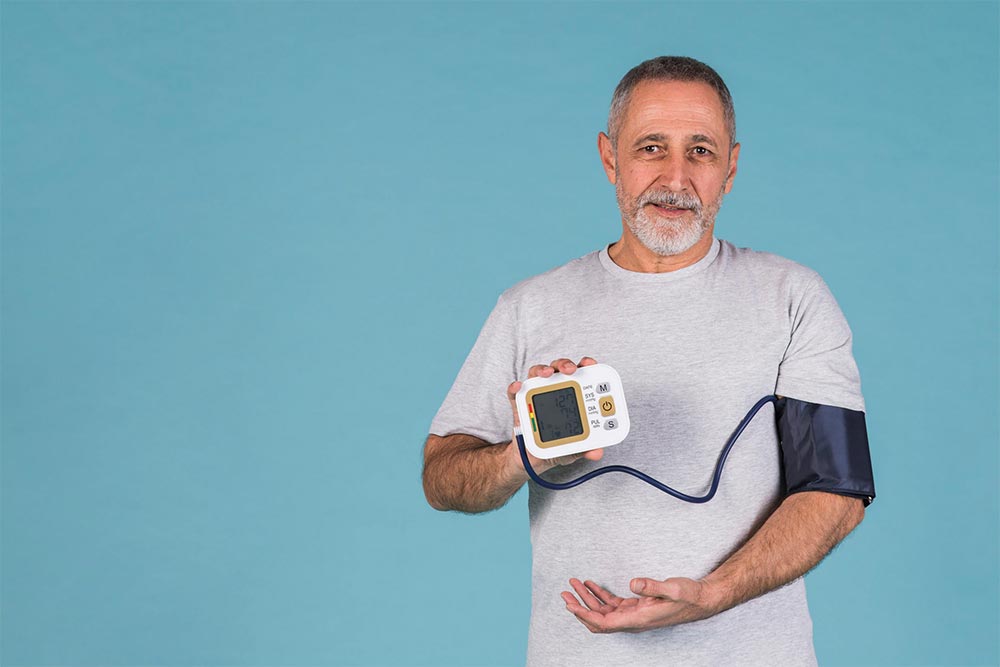Everybody wants to live a long, healthy life, but along with that comes the concern of high blood pressure. Though high blood pressure is an issue that is easier to control in younger adults than in older adults, did you know that older people have a higher risk of hypertension? Hypertension is when the blood pressure of your blood is too high. Initially, it was thought that high blood pressure was only seen or prevented in young people, but more and more research shows that it can begin to increase around age 60 or 65.
Common Causes of Hypertension in Senior Adults
Hypertension, or high blood pressure, can affect adults of any age. But as we age, our naturally changing bodies experience changes that can increase our risk of developing high blood pressure. Hypertension can be caused by aging, hormone changes, existing health problems, and genetics. And did you know that older adults are at a higher risk for certain conditions and diseases? Here are some conditions caused by hypertension:
Arterial Stiffening
There are many causes of hypertension, but one that is seldom discussed is arterial stiffening. Arterial stiffening is a condition caused by damage, or aging, to the walls of arteries. A weakened artery wall, especially a weakened area called the vessel wall, allows blood to leak more freely into the surrounding tissue.
According to the American Heart Association, arterial stiffening is a normal aging process. But arterial stiffening can also cause hypertension (high blood pressure) in older adults. Here are three causes of arterial stiffening in seniors:
-Fat tissue (the stuff that cushions your organs and keeps them from rubbing against your bones and joints) becomes more fibrous as you age. This can increase blood pressure.
-Constriction from atherosclerosis causes an increase in arterial stiffness.
-Lessening of the heart muscle itself causes blood pressure to rise.
Kidney Disease
The kidneys play a vital part in our overall health. They’re the filters of our body and are responsible for filtering out waste from our blood and our urine. They also regulate our blood pressure and the fluids in our blood. But as we age, our kidneys lose their ability to filter waste effectively. That’s why it’s important to know some of the causes of hypertension in senior adults.
Kidney disease causes hypertension in senior adults. A steady rise in blood pressure is a sign that kidney problems are present. The kidneys filter waste from the blood and help regulate blood pressure. The kidneys will also produce hormones such as calcitriol, which helps regulate blood pressure. Chronic kidney disease can no longer filter large amounts of waste and fluids from the blood. This can cause high blood pressure because the blood is filled with waste products.
Diabetes
Diabetes is accompanied by hypertension in 85 percent of elderly diabetic patients. The prevalence of hypertension among elderly diabetic patients is high as 93%. The presence of hypertension in elderly diabetic patients causes various complications. Hypertension is a conventional risk factor for stroke, coronary artery disease, heart failure, and nephropathy.
Diabetes is a condition in which the body either lacks or cannot produce insulin properly. In seniors, this can make it difficult for the body to process sugar, increasing blood pressure.
In addition to a high body mass index, hypertension (high blood pressure) is a risk factor that contributes to Type 2 diabetes. Type 2 diabetes is diagnosed when the body cannot produce enough insulin to move glucose (sugar) from the blood into cells.
Preventing and Treating Hypertension in Seniors
Prevention
Hypertension is commonly overlooked as a health concern in older adults, but high blood pressure (high blood pressure) is a dangerous condition that can have serious consequences if not managed. If you’re over 60, it’s important to know the risk factors for developing high blood pressure to stay ahead of the problem. Some of the risk factors for high blood pressure in older adults include:
-being overweight
-stress
-lack of exercise
-medication use
-smoking
-race
-sex
– family history
Treatment
For seniors, high blood pressure is usually treated with lifestyle changes, such as getting enough exercise and sleep and eating a healthy diet with lots of fresh vegetables and fruits. Treatment for other health issues like heart disease or diabetes may also improve blood pressure.
Thankfully, various treatments are available for those who suffer from hypertension, including medications, lifestyle changes, and surgery. Talk to your doctor about your treatment options to determine which is right for you.
For this reason, senior health providers need to be aware of the common conditions affecting senior hypertension, including high blood pressure medication side effects and which medications are most effective for seniors. If you’re looking for additional treatment options for hypertension, you can check out hypertension clinical trials at Power.

